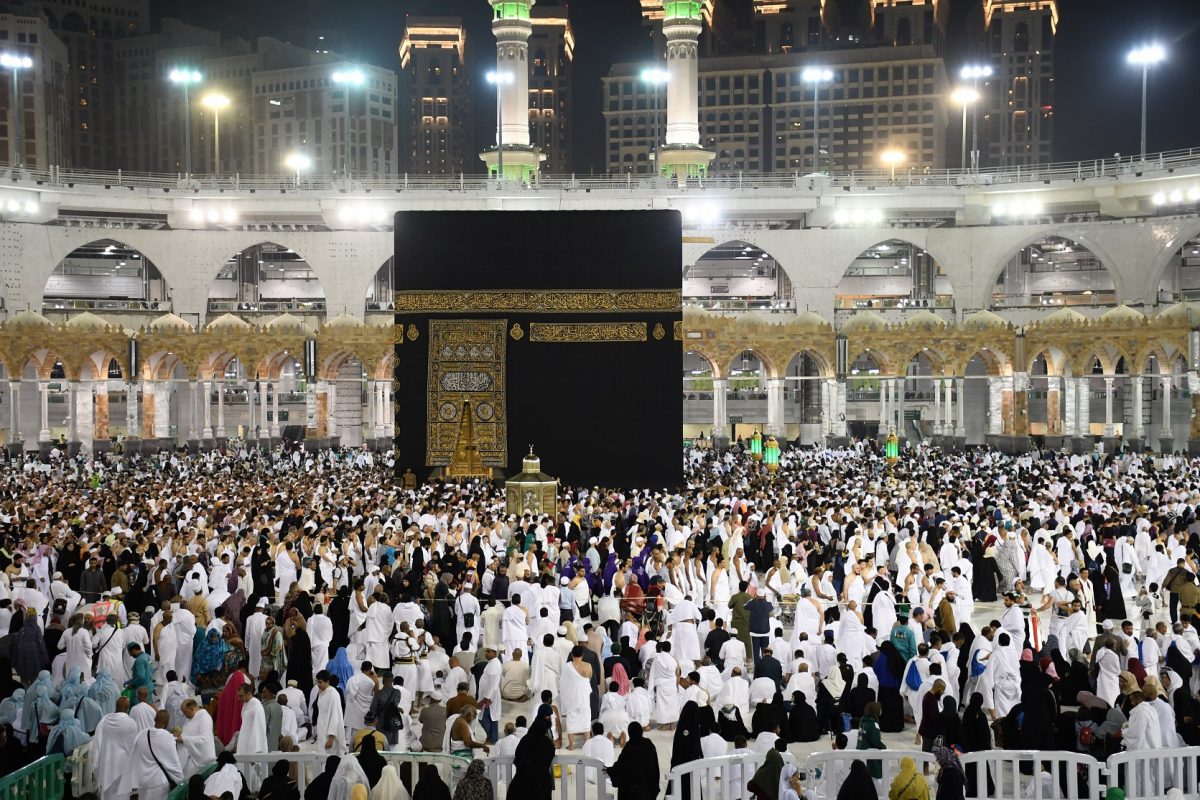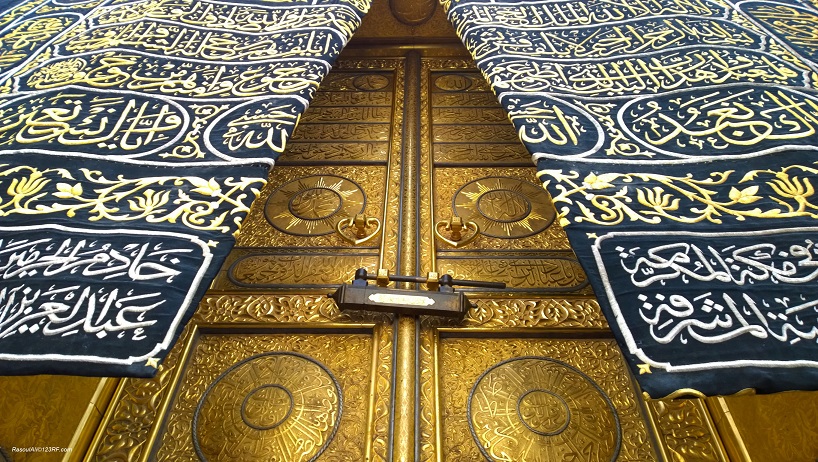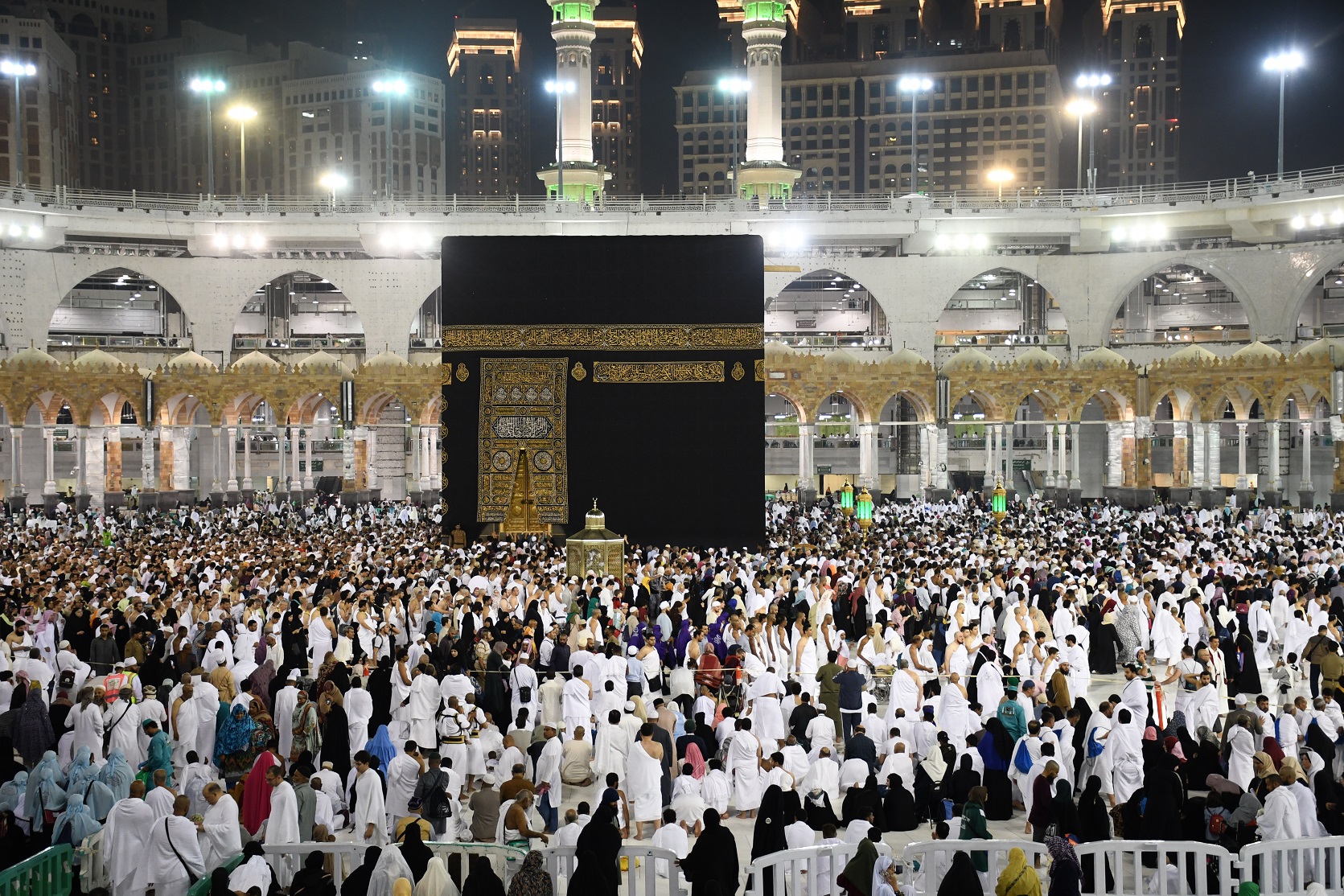The History of Hajj

In this month of Dhul Hijjah, we are now just days from the blessed pilgrimage of Hajj, the festivities of Eid ul Adha and the giving of sacrifice in the form of Qurbani.
Nowadays, we often associate Hajj with images of nearly 3 million pilgrims from around the world flooding into Makkah to carry out a series of rituals acknowledging our Creator.
The history of Hajj has its origins approx. 4,000 years ago in the trials and tribulations faced by the prophet Ibrahim (alaihis salaam) and his family. Having brought his wife Hajira (as) and their son Ismail (as) to Arabia, Ibrahim (as) was commanded by Allah to leave them there.
He carried out that command, leaving them with supplies of food and water. However, those provisions ran out and they were left facing hunger and dehydration.
Hajira (as) ran 7 times between two hills, Safa and Marwa, to seek help and finally collapsed beside Ismail, while praying to Allah for deliverance. It is said that Ismail (as) was scratching at the ground with his feet when water started flowing.

That blessing of this water source, the well of Zam Zam, from Allah marked the start of the flourishing settlement that came to be known as Makkah. Entrusted by Allah to build the Ka’aba, Ibrahim (as) and Ismail (as) constructed what is now known as the centre of the Islamic world and the focus of the Hajj pilgrimage.
It was a gathering place for those who wished to hear and accept the word of Allah, and Ibrahim (as) received a revelation from Allah that it was time to go and proclaim the pilgrimage to mankind.
Indeed, the first house [of worship] established for mankind was that at Makkah – blessed and a guidance for the worlds.
Wherein are clear signs [such as] the standing place of Ibrahim; and whosoever enters it shall be safe. And [due] to Allah from the people is a pilgrimage to the House – for whoever is able to find thereto a way. But whoever disbelieves – then indeed, Allah is freed from need of the worlds.
Qur’an Surah Aali Imran (3: 96-7).

Later the Ka’aba become the centre for idolatry and pagan worship. It was re-consecrated as the House of Allah when our beloved Prophet Muhammad (Peace and Blessings of Allah Be Upon Him) took Makkah as he spread the message of Islam and cleared the Ka’aba of its idols.
He also established the rites and rituals, many of which commemorate the acts of Ibrahim (as) and his family and which are carried out as part of today’s Hajj. Among those is the act of Qurbani, the sacrifice of an animal on the days of Eid ul Adha.
Qurbani is the sunnah of Ibrahim (as) and commemorates his readiness to sacrifice his son Ismail (as) for Allah, an act of submission accepted by his Creator who substituted a ram in place of his son.
Honour the tradition of Ibrahim (as) - give your Qurbani and help feed the poor and people in need.




